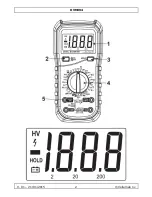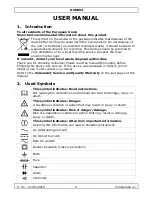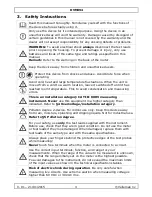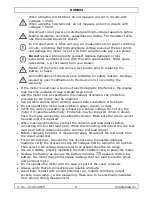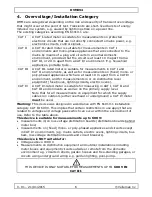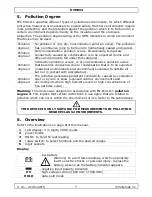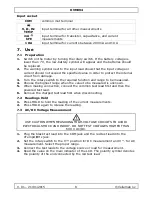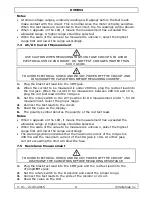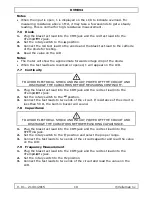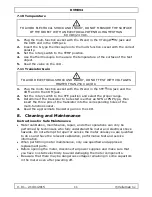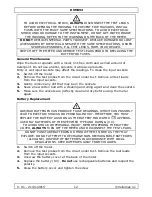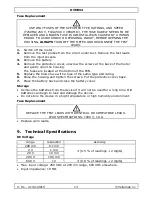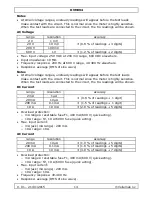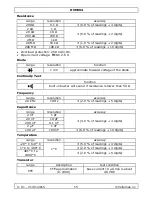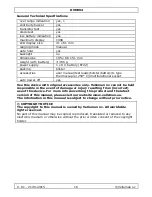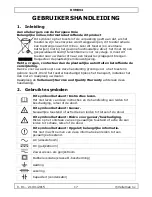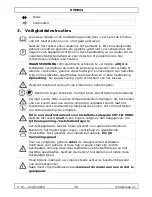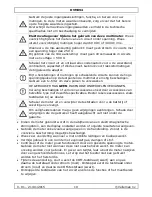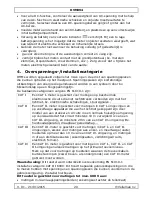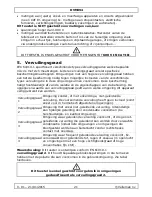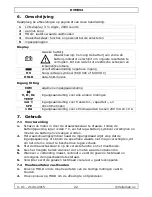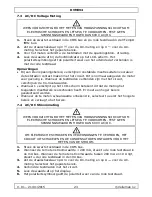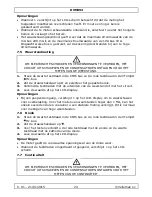
DVM894
V. 01 – 21/01/2015
9
©Velleman nv
Notes
At small voltage ranges, unsteady readings will appear before the test leads
make contact with the circuit. This is normal since the meter is highly sensitive.
When the test leads are connected to the circuit, the tru readings will be shown.
When 1 appears on the LCD, it means the measurement has exceeded the
allowable range. A higher range should be selected.
When the scale of the value to be measured is unknown, select the highest
range first and lower the range accordingly.
7.4
AC/DC Current Measurement
USE CAUTION WHEN MEASURING HIGH-VOLTAGE CIRCUITS TO AVOID
ELECTRICAL SHOCK AND INJURY. DO NOT TEST VOLTAGES HIGHER THAN
600 V AC/DC.
TO AVOID ELECTRICAL SHOCK AND INJURY, POWER OFF THE CIRCUIT AND
DISCHARGE THE CAPACITORS BEFORE MEASURING CURRENT.
1.
Plug the black test lead into the COM jack.
2.
When the current to be measured is under 200 mA, plug the red test lead into
the mA jack. When the current to be measured is between 200 mA and 10 A,
plug the red test lead into the 10A jack.
3.
Set the rotary switch to the A
position for DC measurement and A
for AC
measurement. Select the proper range.
4.
Connect the test leads to the circuit.
5.
Read the value on the display.
6.
The polarity symbol denotes the polarity of the red test lead.
Notes
When 1 appears on the LCD, it means the measurement has exceeded the
allowable range. A higher range should be selected.
When the scale of the value to be measured is unknown, select the highest
range first and lower the range accordingly.
The warning symbol indicates that the maximum current of the mA jack is
200 mA and the maximum current of the 10A jack is 10 A. At either jack,
current exceeding the limit will blow the fuse.
7.5
Resistance Measurement
TO AVOID ELECTRICAL SHOCK AND INJURY, POWER OFF THE CIRCUIT AND
DISCHARGE THE CAPACITORS BEFORE MEASURING RESISTANCE.
1.
Plug the black test lead into the COM jack and the red test lead into the
VTempΩ Hz jack.
2.
Set the rotary switch to the Ω position and select the proper range.
3.
Connect the test leads to the ends of the resistor or circuit.
4.
Read the value on the LCD.


